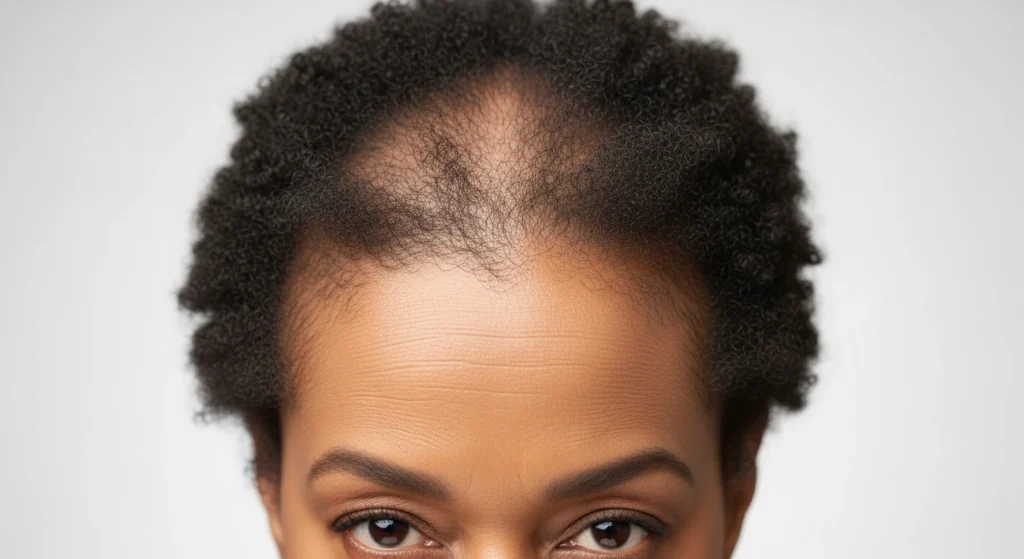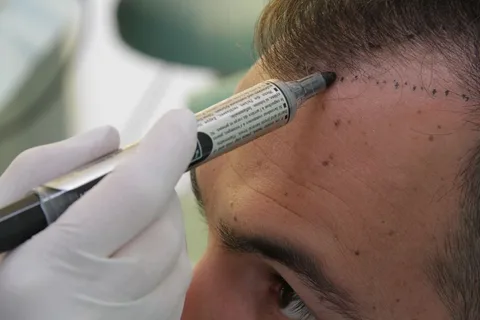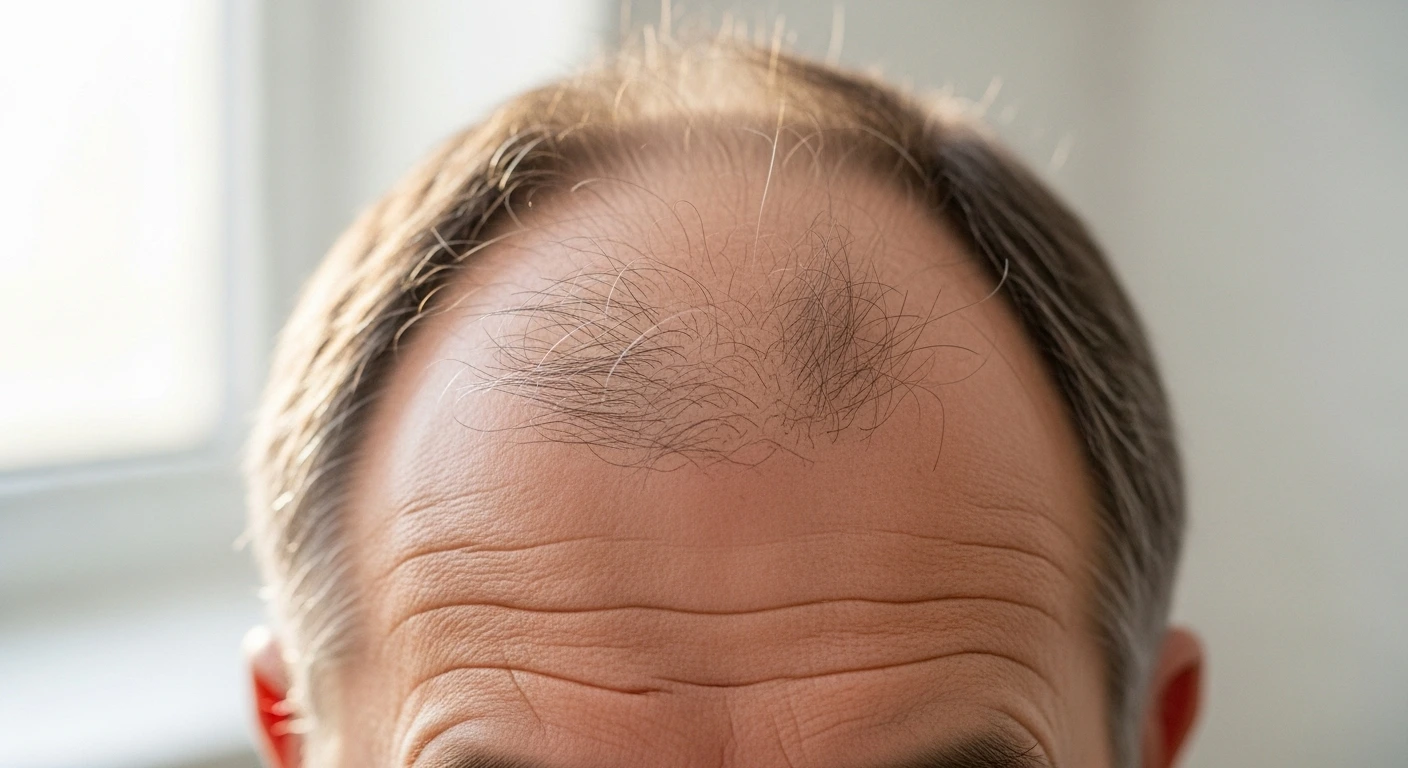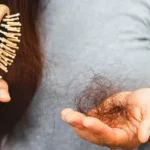Worried about hair loss from tirzepatide? You’re not alone. Many users of GLP-1 medications like Mounjaro and Zepbound have reported sudden hair thinning. This article breaks down why it happens, what to expect, and how to reduce or reverse the shedding. With expert insights, patient experiences, and recovery tips, you’ll feel more in control of …
Worried about hair loss from tirzepatide? You’re not alone. Many users of GLP-1 medications like Mounjaro and Zepbound have reported sudden hair thinning.
This article breaks down why it happens, what to expect, and how to reduce or reverse the shedding. With expert insights, patient experiences, and recovery tips, you’ll feel more in control of your health journey and your hair.
Let’s explore this common yet concerning side effect with medically accurate and trustworthy advice.

Understanding the Problem: Why Hair Loss from Tirzepatide?
If you’ve noticed increased hair shedding after starting tirzepatide, it’s most likely due to a condition called telogen effluvium. This isn’t a permanent form of hair loss, but rather a temporary shift in your hair’s natural growth cycle triggered by physiological stress.
Telogen Effluvium — the Main Mechanism
Tirzepatide may indirectly cause telogen effluvium by creating a shock to the body through:
- Rapid weight loss
- Hormonal changes
- Metabolic shifts
In this state, more hair follicles than usual enter the resting phase (telogen), leading to noticeable shedding within 2–3 months.
Nutritional Deficiencies

Weight loss—especially if rapid—can deplete essential nutrients like:
- Protein
- Iron
- Zinc
- Biotin
- Vitamin D
These are crucial for healthy hair growth. Tirzepatide doesn’t directly block nutrient absorption, but dietary changes during treatment can result in unintentional deficiencies.
Hormonal & Stress Response
GLP-1 receptor agonists like tirzepatide can influence cortisol levels and hormonal balance, both of which are linked to hair cycling. Emotional stress from lifestyle changes may also contribute to the shedding.
How Common Is Hair Loss on Tirzepatide?
Clinical trial data indicates hair loss is a documented but uncommon side effect:
- Zepbound trials reported it in around 4–5% of users.
- Mounjaro data suggested a slightly lower but still present incidence.
- Placebo comparison: Often, ~1–2% experienced similar symptoms, highlighting the potential connection to weight loss or stress, not the drug itself.
Hair loss appears more frequently in:
- Women
- Those with rapid weight reduction
- Individuals with pre-existing deficiencies
Timeline & What to Expect
Hair loss doesn’t occur right away. It typically begins 2–3 months after starting tirzepatide.
Typical Shedding Timeline
- Onset: 8–12 weeks after beginning medication
- Peak shedding: Months 3–4
- Recovery begins: Around Month 5 or 6
- Full regrowth: 6–12 months post-onset
This delay is because telogen effluvium works on a biological delay. The follicles remain dormant for months before returning to growth.
Prevention & Management Strategies of Hair Loss from Tirzepatide
Thankfully, hair loss from tirzepatide is usually temporary and manageable with supportive care.
Safe, Gradual Weight Loss
Avoid crash dieting. Aim to lose no more than 1–2 pounds per week to minimize stress on your body and reduce hair fallout risk.
Maintain Nutritional Balance
Your body—and hair—needs:
- Protein (lean meats, legumes, eggs)
- Iron (spinach, lentils, lean beef)
- Biotin (eggs, nuts, whole grains)
- Zinc (pumpkin seeds, shellfish)
- Vitamin D (sunlight, fatty fish, supplements)
Consider a multivitamin if your intake is restricted due to dietary changes.
Topical & Medical Treatments

While not always necessary, some people benefit from:
- Minoxidil (topical or oral) to stimulate regrowth
- Low-level laser therapy (LLLT)
- Platelet-rich plasma (PRP) injections in chronic cases
Gentle Hair Care
- Avoid tight hairstyles
- Use sulfate-free, nourishing shampoos
- Don’t overheat hair with blow dryers or flat irons
- Massage the scalp gently to improve circulation
Stress Management

Mind-body wellness can influence recovery:
- Practice meditation or yoga
- Get 7–8 hours of sleep
- Seek emotional support if weight changes affect self-esteem
When to Seek Professional Help
If your hair loss:
- Continues beyond 6 months
- Is accompanied by itching or scalp redness
- Occurs in patches or clumps
- Comes with fatigue or brittle nails
…it may not be telogen effluvium. Ask for:
- Thyroid testing (TSH, T3, T4)
- Iron/ferritin levels
- Vitamin D and zinc levels
Consult:
- A dermatologist for scalp evaluation
- An endocrinologist is related to hormonal shifts
- A trichologist for hair cycle analysis
FAQs
Q1. Does tirzepatide cause hair loss?
Yes, in some people, likely due to telogen effluvium from rapid weight loss or stress, not a direct drug effect.
Q2. Is the hair loss permanent?
No. It’s usually reversible with time, nutrition, and scalp care.
Q3. When does the shedding start?
Usually 2–3 months after starting tirzepatide.
Q4. Can stopping the drug reverse the loss?
Hair may begin to regrow even if you continue, as the body adjusts. Stopping can speed recovery, but consult a doctor first.
Q5. What supplements can help?
Iron, biotin, zinc, and protein are key. Always test levels before supplementing.
Q6. Are women more affected?
Yes, due to hormonal sensitivity and greater hair density.
Q7. Should I worry about bald patches?
Patches may indicate another condition, like alopecia areata. See a dermatologist.
Final Thoughts
Concerned about hair loss from tirzepatide? Don’t wait. Book a consultation with Dr. Uzma Irfan, an ISHRS-certified surgeon, to get an expert diagnosis, scalp evaluation, and a customized hair recovery plan. Your confidence deserves a full head of healthy hair—start today.






